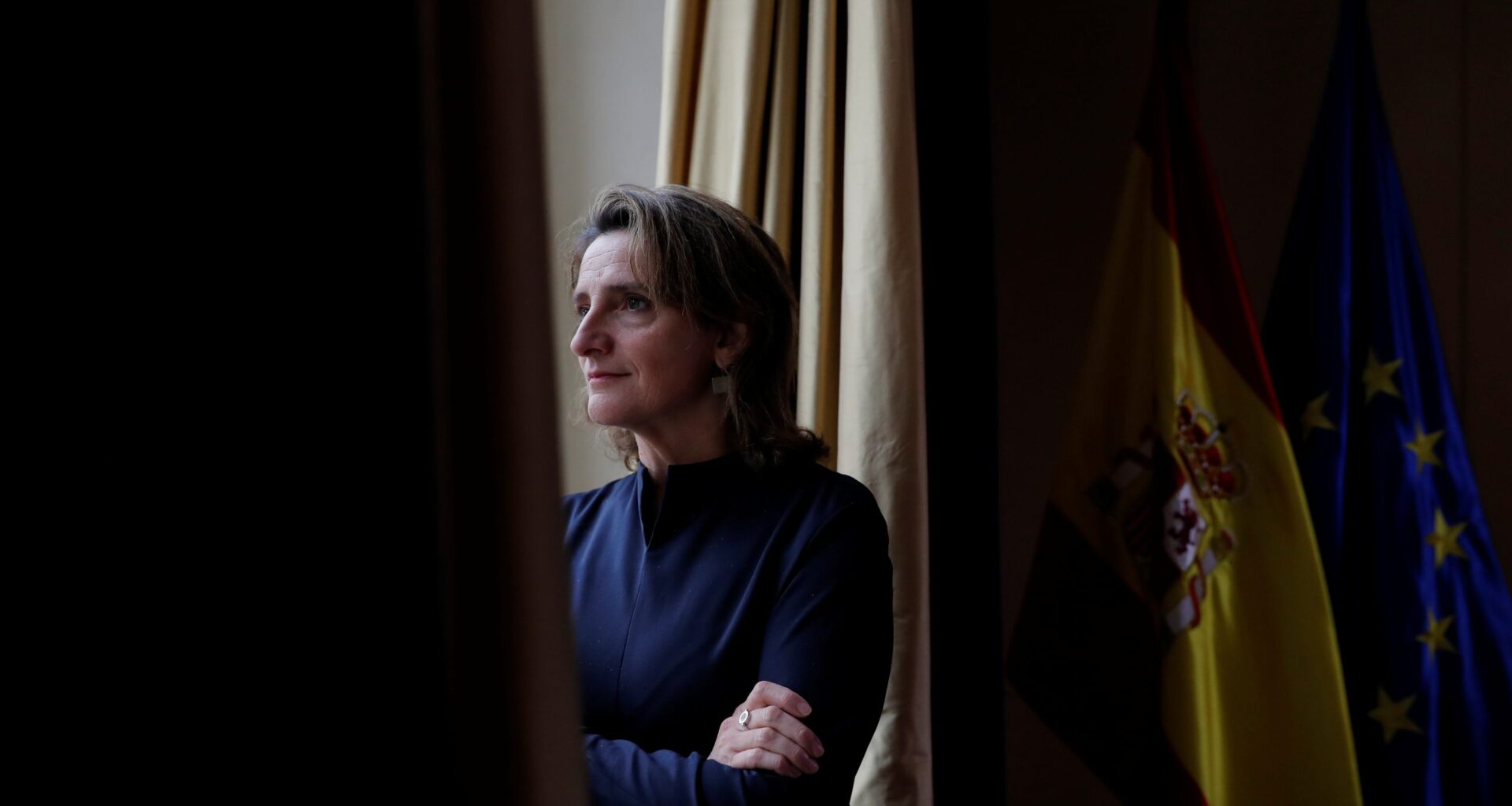After years of hesitation, the EU has published a bold plan to phase out Russian fossil fuels. But as with NATO’s pledge to raise defense spending, Spain has become an unexpected obstacle.
The draft regulation, issued on June 17, just hours after Russia carried out one of its deadliest attacks on Kyiv in recent years, lays out steps to ban oil, pipeline, and liquefied natural gas imports by the end of 2027.
It also includes tough intermediary enforcement and transparency measures obliging importers to submit all information related to Russian gas, while giving customs authorities greater monitoring powers.
If adopted, the regulation would deprive the Kremlin of a lucrative source of revenue and end its often-used energy blackmail against Europe.
Nevertheless, although the EU ensured the proposed regulation is underpinned by trade law, which would make it very difficult for remaining Kremlin-friendly buyers such as Hungary or Slovakia to veto it, it met unexpected opposition from Spain.
Several EU diplomats told Politico that the EU commissioner for competition and clean energy transition, Teresa Ribera, had mounted a backroom campaign to dilute the proposed ban. EU sources confirmed this in private discussions with the author.
The news emerged in the run-up to the NATO summit in The Hague, when Spain angered President Trump and European allies by insisting on an opt-out from the pledge to spend 5% of GDP on defense by 2035.
The EU sources said Commissioner Ribera had been pushing for an emergency brake clause that could ultimately suspend the ban.
The text does stipulate that in case of “sudden and significant developments,” individual member states might be exempted from applying the import prohibitions, while underlining this could happen only for a limited period of time and under strict EU monitoring.
Commissioner Ribera’s cabinet rejected the reports as “absurd” and said she had been helping to craft a legally robust proposal.
Nevertheless, EU sources told this author the situation may be more complicated than reported in the mainstream media.
They fear the Spanish administrative and political delegation to the EU may be attempting to “dig holes” beneath the proposed ban, although they struggle to find an explanation.
As vice-president of the European Commission for Clean, Just and Competitive Transition, Ribera is expected to ensure the EU remains committed to the phaseout of fossil fuels, including those of Russian origin.
Get the Latest
Sign up to receive regular emails and stay informed about CEPA’s work.
Spain itself claims to be at the forefront of Europe’s energy transition, setting ambitious targets to generate 81% of its energy from renewable sources by 2030.
Politically, Ribera is not only a veteran climate campaigner but also a Ukraine supporter, who, no doubt, understands that Russian fossil fuel exports to Europe have generated more than €200bn ($236bn) in war revenue for the Kremlin since the start of the full-scale war in 2022.
Spain is one of the few remaining importers of Russian LNG, and is expected to import volumes until 2042 under existing contractual terms.
Its offtakes have more than doubled since 2021, according to international energy news and data provider, ICIS.
Although in previous interviews, Francisco Reynés, the CEO of Naturgy, the Spanish company which imports Russian LNG, said it was not taking advantage of its contract with Novatek, he has recently written to Ursula von der Leyen, warning the Commission president about the hefty penalties it risks if the company pulled out of its long-term contract.
Naturgy’s position contrasts sharply with that of TotalEnergies.
The French supermajor has similar long-term arrangements for Russian LNG imports, but has recently said it would have no problem replacing offtakes with LNG from other sources.
TotalEnergies also nearly doubled its Russian LNG imports between 2021 and 2024, according to ICIS.
What, then, accounts for Spain’s seemingly unfounded concerns?
One possibility is the Spanish government is keen to retain diversified supply, importing gas from the US, Nigeria, Algeria, and Russia, and is reluctant to replace Novatek’s volumes with LNG from the other producers.
That may only be partially true as LNG production is set to soar globally from 2026, opening opportunities for diversification and price competition.
It’s also possible Ribera may be looking to protect the interests of Naturgy, a major Spanish multinational, which may face penalties on its long-term contract if it unilaterally pulled out of the Novatek contract.
But the suggestion is tenuous, considering that other companies such as TotalEnergies are in a similar situation but appear more comfortable about ending their supply agreement.
Another argument is that the Spanish government does not see any threats in working with Moscow and would therefore be keen to continue Russian LNG imports. Its behavior at the NATO summit may support that.
But even this reasoning sounds odd in the light of suspicions that Catalan separatism may have been stoked by Russia.
Whatever the explanation, the Spanish government’s position is baffling not least because it seems more comfortable assuming a pariah position among fellow EU and NATO members than work with partners to curb Russia’s malign influence.
Aura Sabadus is a senior energy journalist writing for Independent Commodity Intelligence Services (ICIS), a London-based global energy and petrochemicals news and market data provider. She is also a Non-resident Senior Fellow with the Democratic Resilience Program at the Center for European Policy Analysis (CEPA).
Europe’s Edge is CEPA’s online journal covering critical topics on the foreign policy docket across Europe and North America. All opinions expressed on Europe’s Edge are those of the author alone and may not represent those of the institutions they represent or the Center for European Policy Analysis. CEPA maintains a strict intellectual independence policy across all its projects and publications.

Date: June 5, 2025
Time: 9:00 am to 12:00 pm CET
Europe’s Edge
CEPA’s online journal covering critical topics on the foreign policy docket across Europe and North America.
